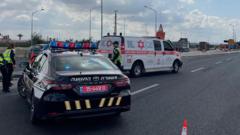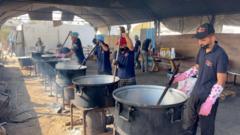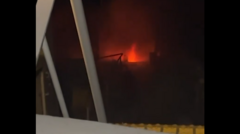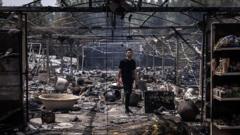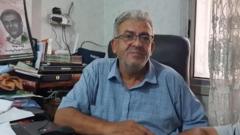The situation in the West Bank is increasingly dire as Israeli military operations lead to the demolition of homes, displacing thousands of Palestinians. Families like Jumaa Zawayda’s face the heart-wrenching reality of losing their homes while grappling with the constant threat of violence. The humanitarian crisis echoes the long-standing tensions in the region as military strategies clash with civilian lives.
Escalation in West Bank: A Palestinian Family's Fight for Home Amid Demolitions
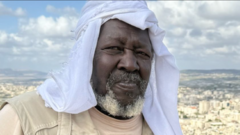
Escalation in West Bank: A Palestinian Family's Fight for Home Amid Demolitions
As Israeli forces intensify home demolitions in West Bank refugee camps, stories like Jumaa Zawayda's emerge, revealing the deep emotional and physical toll on displaced families.
Jumaa Zawayda, a 66-year-old Palestinian resident of the Jenin refugee camp, embodies the struggles faced by many living in the occupied West Bank during a time of escalating military operations. When Israeli forces demanded the evacuation of the camp's 20,000 residents, Jumaa resolutely chose to stay, hoping to protect his home from the destruction he feared was coming.
Over three fear-filled days, amid sounds of gunfire, explosions, and drone surveillance, Jumaa's resolve was tested. Eventually, with basic utilities cut off and no means to communicate, he had no choice but to leave. Months later, he finds himself standing on a hill overlooking what he once called home, searching for signs of its survival amid the backdrop of devastation inflicted by Israeli operations.
Jumaa, a father of nine, has since sought refuge in makeshift accommodations after his home was presumably demolished during Israel's ongoing military campaign against groups operating within the refugee camp. The underlying conflict has boiled over into a renewed Israeli campaign — "Operation Iron Wall" — which the United Nations reports has led to at least 260 buildings being destroyed, displacing an estimated 42,000 Palestinians since January.
The military operations aim to dismantle what Israeli officials label "nests of terror," with Defence Minister Israel Katz emphasizing the urgency to destroy militant infrastructure. While the number of fighters remains uncertain, local estimates suggest a small, yet determined, contingent, leading to a violent back-and-forth that effects entire communities. As documented by humanitarian agencies, the campaign has precipitated a humanitarian crisis unprecedented in recent decades.
Jumaa managed to return briefly to his home, where he salvaged only his UN refugee identification card and his family dog. The recent demolitions have left many families wondering if they will return to anything and what remains of their lives. Many are engulfed in a sense of despair as they grapple with whether their homes still stand.
Local authorities, such as Jenin’s Mayor Mohammad Jarrar, are also overwhelmed by the situation, struggling to address the needs of a community whose infrastructure has been effectively dismantled. Reports of detained municipal workers seeking to restore basic services underscore the chaos and overwhelming difficulty in restoring a semblance of normalcy.
Despite the despair, Jumaa clings to the hope of returning to his land. "If they won’t let me rebuild my house, I will set up a tent in its place," he vows. His determination to return reflects a broader resilience seen among Palestinians who, even after decades of conflict and displacement, continue to assert their connection to their homeland.


